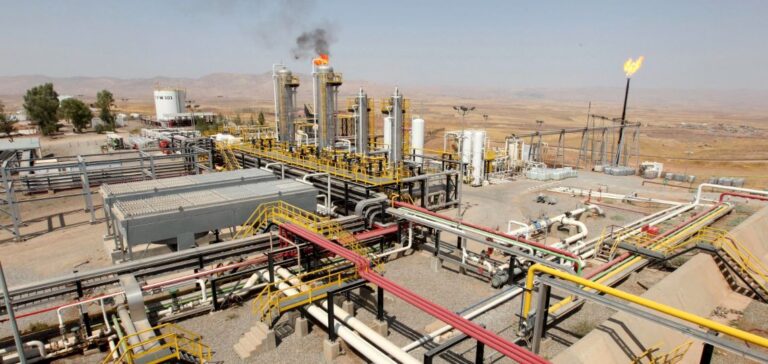The Kurdistan Regional Government (KRG) has signed two major energy agreements with US companies for the development of resources in the autonomous northern region of Iraq. These contracts were formalised in Washington in the presence of Kurdish Prime Minister Masrour Barzani, with their combined value estimated at $110bn over the lifetime of the projects.
Two distinct projects with strategic scope
The first agreement was concluded with HKN Energy Ltd, a Texas-based company, for the development of the Miran block, a petroleum zone located in the Kurdistan Region. The project represents an estimated $40bn investment over its lifecycle. The second deal was signed with Western Zagros, a subsidiary of Houston-based investment firm Crest Energy International. This contract targets the development of the Topkhana-Kurdamir gas field, valued at $70bn.
These projects come amid strengthening economic ties between the Kurdish autonomous region and the United States, and form part of a series of recent energy engagements between the two partners. Both fields covered by the agreements are located in areas with high hydrocarbon potential.
Extension of a growing energy partnership
The previous month, GE Verona, a subsidiary of the US conglomerate General Electric, signed a $100mn agreement with Taurus Energy to upgrade the Bazyan power plant, which has a capacity of 1,250 MW. The facility supplies electricity to more than 1.5 million households in Iraq, according to data released at the time.
The rapid succession of these agreements highlights the strategic interest of American operators in Kurdistan’s energy resources. In return, the Kurdish regional government is relying on such partnerships to attract private capital and enhance its energy security.
Cooperation focused on resource development
Prime Minister Masrour Barzani welcomed the signing of the contracts as an economic lever for his region, describing the relationship with the United States as “mutually beneficial.” However, no specific timeline was disclosed regarding the commencement of operations or project phases.
These energy agreements cover both oil and gas development and may help reposition Kurdistan on the regional map of hydrocarbon exporters. The involvement of Texas-based firms also points to the continued interest of US investors in high-potential energy zones despite prevailing geopolitical risks.






















